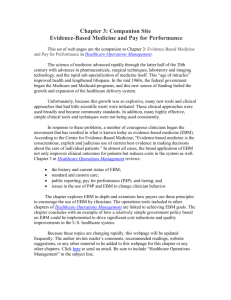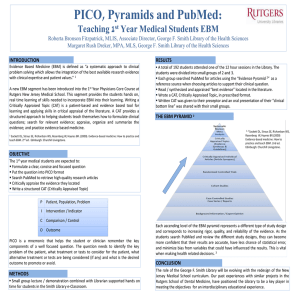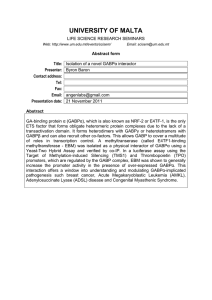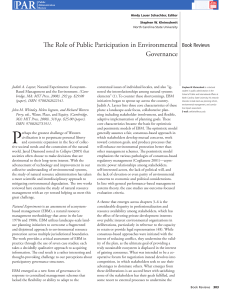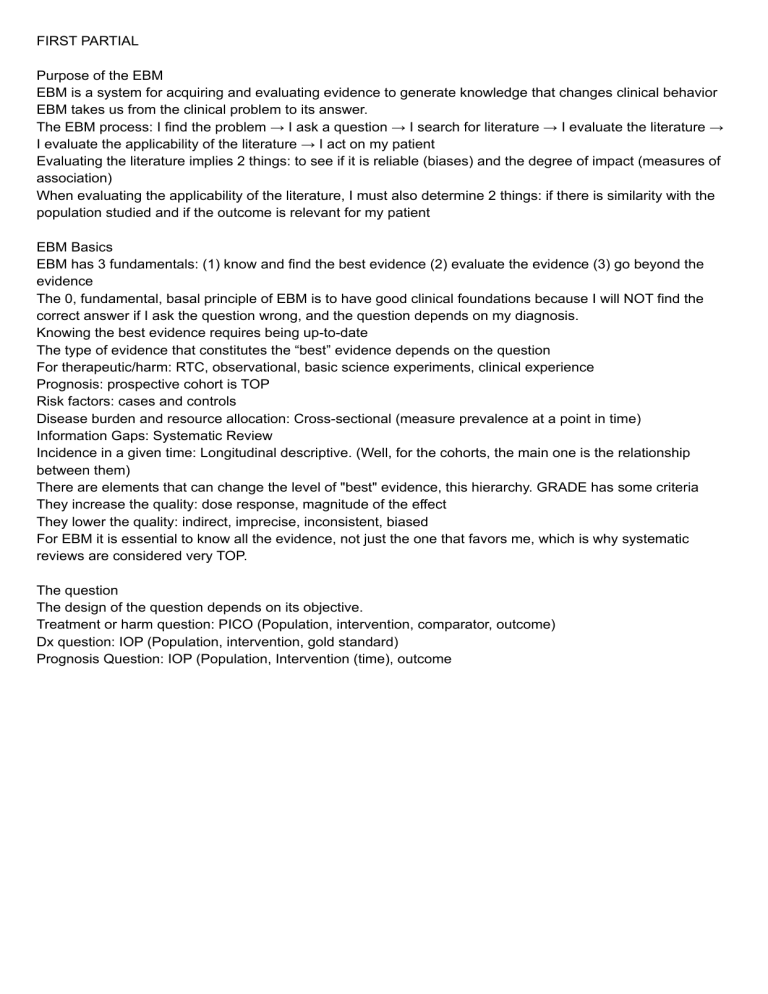
FIRST PARTIAL Purpose of the EBM EBM is a system for acquiring and evaluating evidence to generate knowledge that changes clinical behavior EBM takes us from the clinical problem to its answer. The EBM process: I find the problem → I ask a question → I search for literature → I evaluate the literature → I evaluate the applicability of the literature → I act on my patient Evaluating the literature implies 2 things: to see if it is reliable (biases) and the degree of impact (measures of association) When evaluating the applicability of the literature, I must also determine 2 things: if there is similarity with the population studied and if the outcome is relevant for my patient EBM Basics EBM has 3 fundamentals: (1) know and find the best evidence (2) evaluate the evidence (3) go beyond the evidence The 0, fundamental, basal principle of EBM is to have good clinical foundations because I will NOT find the correct answer if I ask the question wrong, and the question depends on my diagnosis. Knowing the best evidence requires being up-to-date The type of evidence that constitutes the “best” evidence depends on the question For therapeutic/harm: RTC, observational, basic science experiments, clinical experience Prognosis: prospective cohort is TOP Risk factors: cases and controls Disease burden and resource allocation: Cross-sectional (measure prevalence at a point in time) Information Gaps: Systematic Review Incidence in a given time: Longitudinal descriptive. (Well, for the cohorts, the main one is the relationship between them) There are elements that can change the level of "best" evidence, this hierarchy. GRADE has some criteria They increase the quality: dose response, magnitude of the effect They lower the quality: indirect, imprecise, inconsistent, biased For EBM it is essential to know all the evidence, not just the one that favors me, which is why systematic reviews are considered very TOP. The question The design of the question depends on its objective. Treatment or harm question: PICO (Population, intervention, comparator, outcome) Dx question: IOP (Population, intervention, gold standard) Prognosis Question: IOP (Population, Intervention (time), outcome
